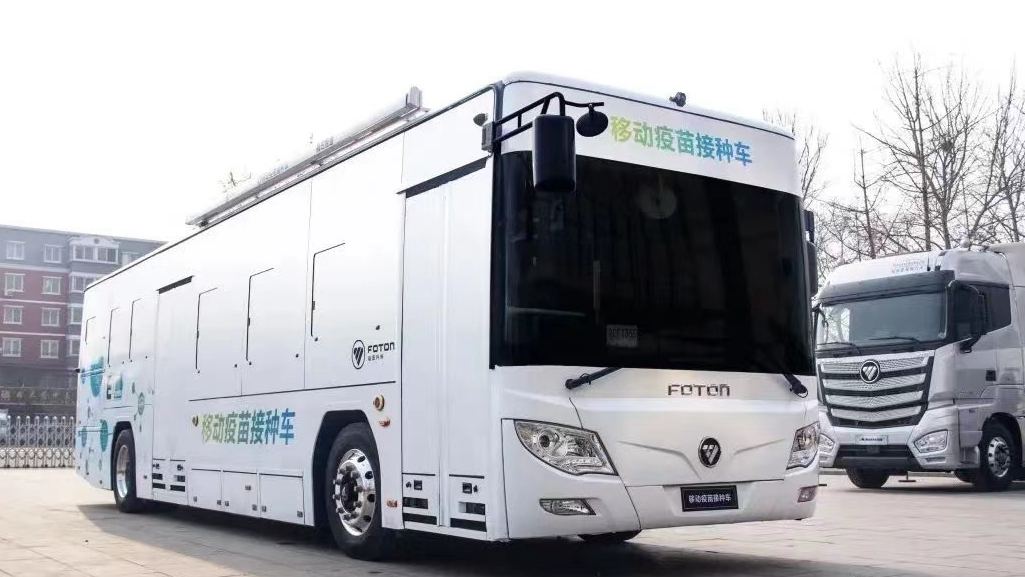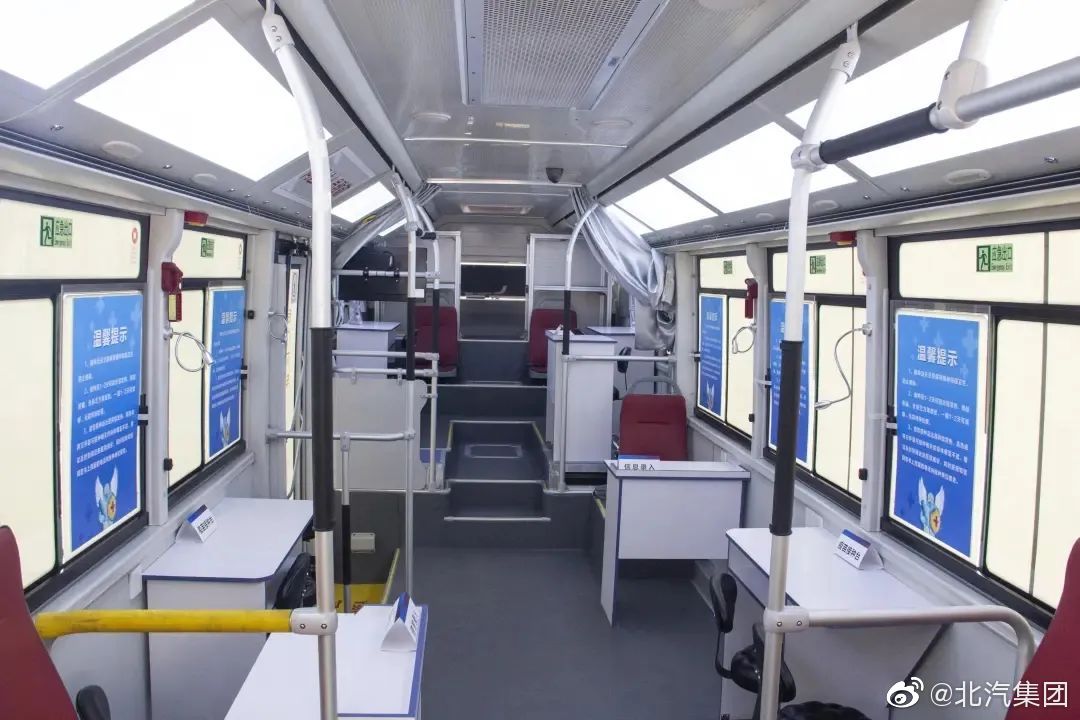
Foton's vaccination vehicle. /BAIC Group
Foton's vaccination vehicle. /BAIC Group
A new vaccination vehicle is expected to go into service in Beijing and the northern Hebei Province in April, reported Beijing Daily citing its developer Beiqi Foton Motor Co.
The vehicle looks no different from an ordinary bus from the outside, but accommodates all necessary elements required for vaccination, including areas for attendance, registration and inoculation as well as a specialized refrigerator for storing vaccines.
The vehicle will go to places where people need inoculation, sparing their trouble of going to designated vaccination sites.

The interior of the vaccination vehicle. /BAIC Group
The interior of the vaccination vehicle. /BAIC Group
People will have their temperature checked by a facial recognition device at the door before entering the vehicle and going to the waiting area. They'll get a jab after registration and wait in an observation area outside the bus.
The bus has two spots for keeping vaccine storage boxes with cloud data transmission. When powered by an external 220V power supply, air conditioning and vaccine refrigeration can be ensured for longer periods.
"Real-time data needs to be transmitted during the vaccination, so the vehicle is specially equipped with a WiFi, which can be connected to 5G network to ensure fast information transmission," said Cheng Hua, a product director of the auto company.
The developer is reported to be able to make 12 such special-purpose vehicles per day.
Another vaccination vehicle, jointly developed by the Chinese Center for Disease Control and Prevention and Haier Biomedical in 2019, has already provided services in multiple Chinese provinces, including Shandong, Henan and Hubei, delivering the service to more than 20,000 people.
Supported by 5G and big data, vaccination can be digitally managed, with the whole process recorded and traced.
It also effectively helps solve the problem of vaccination in remote areas.

